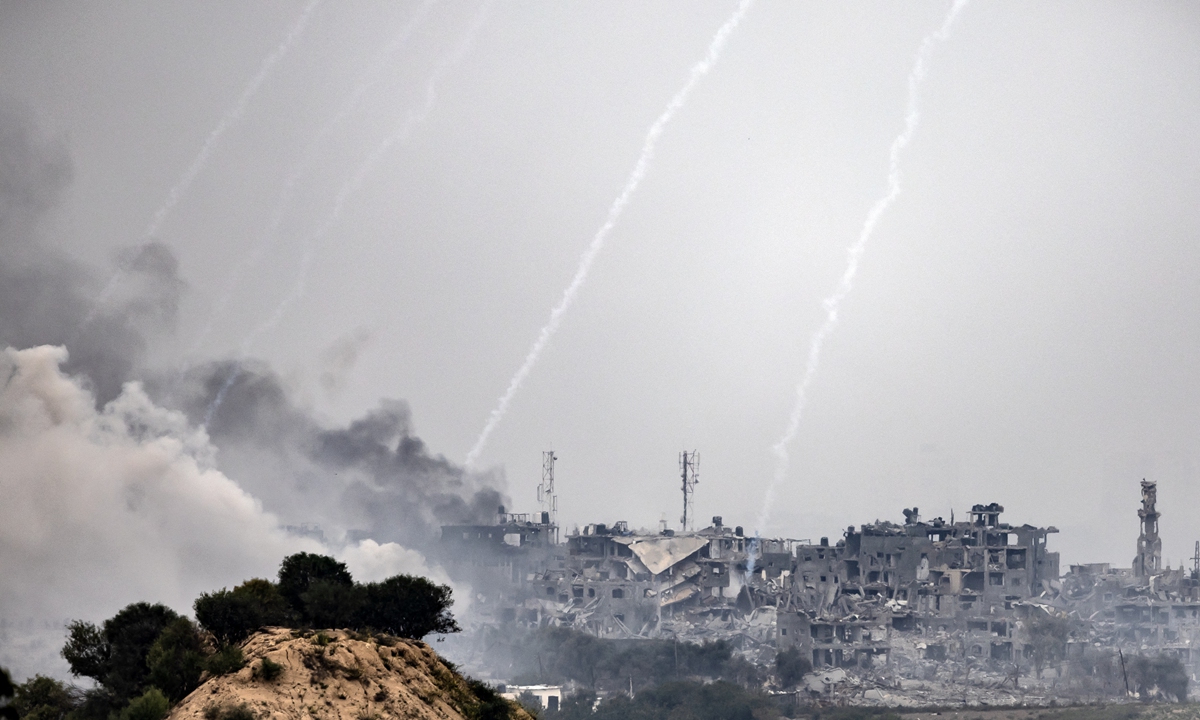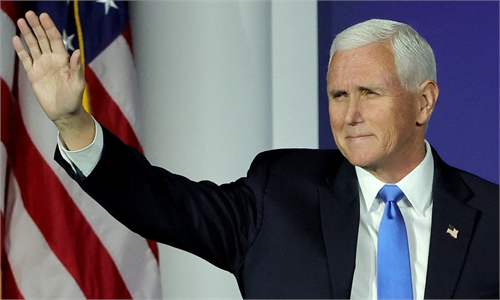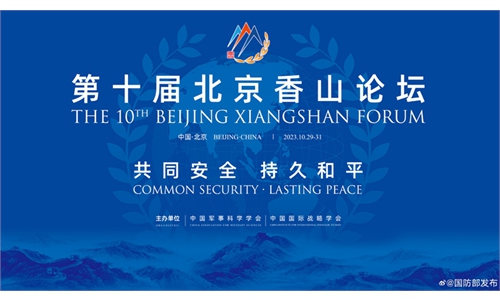
Photo: AFP
Why should US fear the Israel-Palestine conflict more than China? The answer: "hatred."The Israel-Palestine conflict began because of hatred, which will further escalate and make it increasingly challenging to resolve for future generations. The 9/11 terrorist attacks were fueled by hatred, and Americans ask: Why do they hate America? There was even an international bestseller to explain it - WHY DO PEOPLE HATE AMERICA? (By Ziauddin Sardar and Merryl Wyn Davies.)
You can create enemies to motivate yourself, but this will inevitably undermine mutual trust and provoke antagonism, which has the potential to trigger confrontational strategic escalation until both sides see each other as enemies. But, antagonism does not necessarily trigger hatred immediately unless the antagonism triggers war. Hatred is brewed by war and death. In the abyss of hatred, peace becomes an elusive dream. Bruce Riedel, a scholar at the Brookings Foundation in the US, wrote this in an article on July 27, 2020, entitled "30 years after our 'endless wars' in the Middle East began, still no end in sight."
After World War II, the US waged 13 wars of varying sizes around the globe, seven of which were related to the Middle East. In 2001, the US launched the war in Afghanistan, a war that lasted until August 2021. In March 2003, the US fabricated and spread the lie that Saddam Hussein was concealing weapons of mass destruction (WMDs), justifying the launch of a full-fledged war in Iraq. Since 2014, the US has been embroiled in a series of wars against Yemen, Iraq, Libya and Syria in military interventions.
The Middle East region is already plagued by hostility and hatred, deeply entrenched in the historical conflict between Western and Islamic civilizations. With the war in Gaza raging, the Middle East has been filled once again with anger. This anger is not only directed against Israel, but also against Israel's staunchest supporter, the US. Those US warships and bases deployed in the Middle East could become embroiled in the conflict at any time and become hate-mongers.
Washington couldn't make a balanced choice between supporting Israel's "revenge" and alleviating the humanitarian catastrophe inflicted on the Gaza Strip. US politicians did not even dare to mention the word "ceasefire." Washington demands that other countries "act by international rules," but in the case of the Palestinian issue, Israel has not complied with UN resolutions.
The US is still the most powerful country in the world, but if it can't create more peace, the erosion of its leadership is inevitable. The threat to the US is thus much more than the perceived challenge posed by the rise of China. The illusion that China possesses a comprehensive strategy to supplant or surpass the US and assume the helm of the global order has been hyped up as a matter of life and death for the US by those strategists in Washington who don't even understand China. They forget the actual detriment to American leadership lies in the hate it incessantly cultivates.
The US has mainly relied on its powerful military to maintain order. However, its dedication to inclusive development is insufficient. Even when there is commitment, it often comes with solid ideological standards, leading to the ongoing marginalization of specific nations and populations. Consequently, this contributes to the re-emergence of conflicts in the Middle East.
After realizing the so-called competition from China's Belt and Road Initiative, the US introduced its own "New Silk Road." But Washington's planning of this strategy is still focused on safeguarding its leadership and counterbalancing the rivals, and not focused on providing a common and inclusive development.


